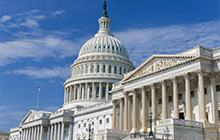 On November 2, 2022, the Pennsylvania Office of Attorney General filed a lawsuit in federal court alleging that a group of companies offering lead generation services violated the Telemarketing Sales Rule (“TSR”), 16 C.F.R. Part 310, and Pennsylvania consumer protection law, 73 P.S. §§ 201-3 and 201-4, by engaging in two improper advertising practices. First, the defendants allegedly used deceptive online ads to lure customers to websites where they would be tricked into providing contact information and survey responses, and second, their contact information and responses were allegedly sold to telemarketers unlawfully, even for customers on state or national do-not-call lists.
On November 2, 2022, the Pennsylvania Office of Attorney General filed a lawsuit in federal court alleging that a group of companies offering lead generation services violated the Telemarketing Sales Rule (“TSR”), 16 C.F.R. Part 310, and Pennsylvania consumer protection law, 73 P.S. §§ 201-3 and 201-4, by engaging in two improper advertising practices. First, the defendants allegedly used deceptive online ads to lure customers to websites where they would be tricked into providing contact information and survey responses, and second, their contact information and responses were allegedly sold to telemarketers unlawfully, even for customers on state or national do-not-call lists.
According to the complaint, defendants operate “dozens of websites designed for lead generating,” including surveysandpromotions.com, restaurantpromotionsusa.com and mymonthlysweeps.com, which advertise “gift cards to popular retailers and digital payments to mobile apps” to consumers in exchange for answering survey questions. The websites prompt visitors to provide their personal contact information and click a box providing that they consent to fine print disclosures that say they will receive prerecorded calls and text messages from marketing partners for purposes of telemarketing, whose names are disclosed to the customers by a hyperlinked list. Likewise, the survey questions customers are directed to answer on the websites include fine print saying that by clicking certain answers, the customers give their consent to be contacted by marketing partners, even if they are on do-not-call registries. However the complaint alleges that these disclosures are insufficient because they are “notably obscured by [images] of the promotional offer.” The complaint further alleges that the purported consent obtained from these customers is illegitimate because in order to waive one’s registry on a do-not-call list and allow a telemarketer to start sending messages, there needs to be a direct agreement between the telemarketer and the customer. This means that “the express agreement must be obtained directly by the seller or telemarketer from the consumer,” not by a lead generator.
The attorney general’s office purports to base its complaint’s theory for TSR liability that consent to call persons on the do-not-call list cannot be obtained on behalf of third-parties on the FTC’s Statement and Basis of Purpose of the 2008 Amendments to the TSR published in the Federal Register. There, the FTC made a statement in response to comments to the rulemaking regarding whether consent is transferrable. The FTC said that “a consumer’s agreement with a seller to receive calls delivering prerecorded messages is nontransferable,” and “[a]ny party other than that particular seller must negotiate its own agreement with the consumer to accept calls delivering prerecorded messages.” 73 Fed. Reg. 51163, 51182 (Aug. 2008). The FTC then concluded that “[p]rerecorded calls placed to a consumer on the National Do Not Call Registry by some third party that does not have its own agreement with the consumer would violate the TSR.” Id. Although the attorney general relies on this 2008 Statement and Basis of Purpose, the Statement does not actually address the legal question of whether a consumer can contractually agree to request and give consent for communications from third parties and is a novel theory.
According to the complaint, the defendants’ websites also violate state consumer protection law because they “create[] a likelihood of confusion or of misunderstanding” by “fail[ing] to include clear and conspicuous disclosures advising consumers that by registering their contact information with defendants they are purportedly consenting to be contacted by multiple third party sellers, whose products and services are wholly unrelated to the promotional offerings.”
The attorney general’s office is seeking, among other remedies, civil penalties of $1,000 per violation or $3,000 per violation involving a victim older than 60, disgorgement of profits, and a permanent bar on selling the consumer data collected in violation of the TSR.
